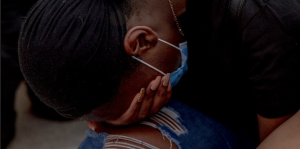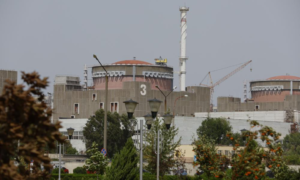Sat 20 Apr 2024 04.18 EDT
Brittany Higgins says she hopes Justice Michael Lee’s judgment in Bruce Lehrmann’s failed defamation case will set a new precedent for how courts consider the testimonies of victims of sexual assault.
In a statement on Saturday, Higgins also said she was “devastated a rapist was given a nationwide platform to maintain his lies about what happened”. She hoped people who contributed to Channel Seven’s Spotlight program last June, in which Lehrmann was interviewed, “will reflect on their decision”.
But Higgins also apologised to the former defence minister Linda Reynolds and her then chief of staff Fiona Brown, after Lee’s judgment rejected Higgins’s claims of a political cover-up.
“I was raped. No judgment was ever going to change this truth,” Higgins said in her statement, which she posted to social media on Saturday afternoon.
“I lived with the shame, humiliation, and fear of what telling my story would mean for my life and career, like so many other victim survivors.
“I was scared I wouldn’t be believed or supported.”
In Monday’s decision dismissing Lehrmann’s action, Lee said the former Liberal staffer was not defamed by journalist Lisa Wilkinson and Network Ten when The Project broadcast an interview with Higgins on Monday 15 February 2021 in which she alleged she was raped in Parliament House.
He found that on the balance of probabilities Lehrmann raped Higgins on the minister’s couch in Parliament House in 2019.
But Lee said allegations there had been a political cover-up were “objectively short on facts but long on speculation”.
“Thanks to Justice Lee for his trauma informed approach, recognising that reactions to assault can vary widely,” Higgins said.
“In doing so, I hope he has set a new precedent for how courts consider the testimonies of victim survivors of sexual assault.”
Higgins said the toxic culture at Parliament House was not something she “just imagined” – and she had felt compelled to tell her story.
She noted thousands of staff who had worked in commonwealth ministerial offices and on both sides of politics subsequently came forward to contribute to Kate Jenkins’s review of parliamentary culture.
Higgins said while she did not agree with all of Lee’s findings, she respected his observations “about the many people scarred and damaged in the aftermath of my rape”. She said there were people who had been “unwittingly wrapped up in years’ worth of media discourse and legal battles in relation to my rape”.
“Senator Reynolds and Fiona Brown have also been hurt and for that I am also sorry,” she said.
“My perceptions and feelings about what happened in the days and weeks after my rape are different from theirs.
“I deeply regret we have not yet found common ground.”
She said she hoped they could resolve their differences with a better understanding of each other’s experiences.
“It is now time to heal.”
A message from Betsy Reed, editor of the Guardian US
I hope you appreciated this article. Before you move on, I wanted to ask if you would consider supporting the Guardian’s journalism during one of the most consequential news cycles of our lifetimes.
From Elon Musk to the Murdochs, a small number of billionaire owners have a powerful hold on so much of the information that reaches the public about what’s happening in the world. The Guardian is different. We have no billionaire owner or shareholders to consider. Our journalism is produced to serve the public interest – not profit motives.
And we avoid the trap that befalls much US media: the tendency, born of a desire to please all sides, to engage in false equivalence in the name of neutrality. We always strive to be fair. But sometimes that means calling out the lies of powerful people and institutions – and making clear how misinformation and demagoguery can damage democracy.
From threats to election integrity, to the spiralling climate crisis, to complex foreign conflicts, our journalists contextualise, investigate and illuminate the critical stories of our time. As a global news organisation with a robust US reporting staff, we’re able to provide a fresh, outsider perspective – one so often missing in the American media bubble.
Around the world, readers can access the Guardian’s paywall-free journalism because of our unique reader-supported model. That’s because of people like you. Our readers keep us independent, beholden to no outside influence and accessible to everyone – whether they can afford to pay for news, or not.If you can, please consider supporting us just once from $1, or better yet, support us every month with a little more. Thank you.




